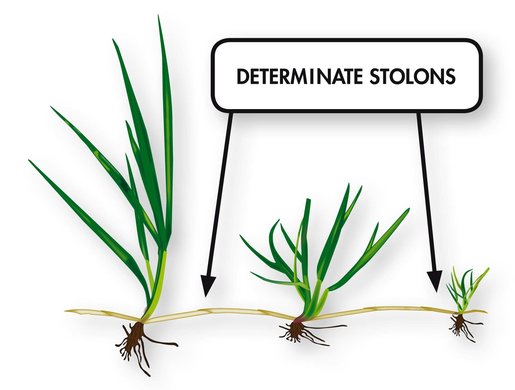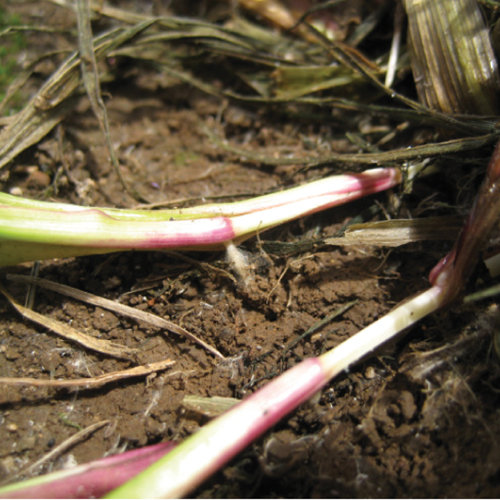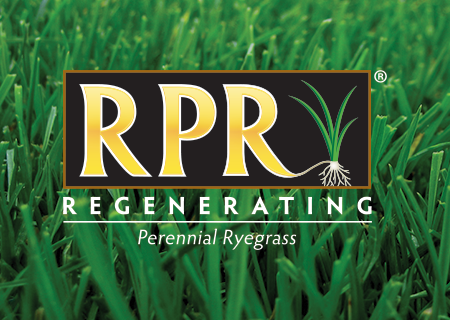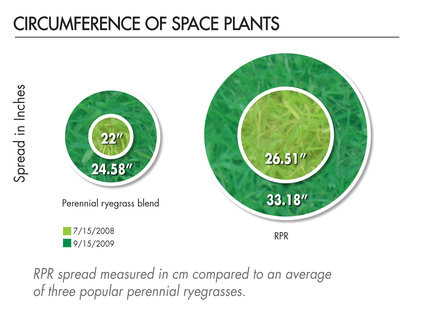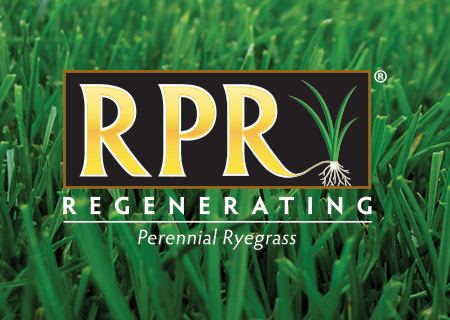RPR’s unique ability to regenerate separates it from both traditional and lateral spreading perennial ryegrasses. A product of advanced DETERMINATE-STOLONS breeding techniques, RPR develops determinate-stolons which allow for regeneration in all directions. Determinate-stolons arise from an auxiliary bud near the base of the mother plant and then grow horizontally 6-8” at, or just below, the soil surface, creating identical new plants as they grow. When RPR turf is damaged from an extreme traffic event or worn from persistent traffic, its determinate-stolons will grow horizontally into the worn areas, develop roots and rapidly repair the damaged area. The photos below show RPR plants, determinate-stolons and developed roots.
Protected by patent #8,927,804, RPR’s patent includes 50 statements which cover various aspects including determinate-stolon counts, crown perimeter and a determinate-stolon index. Other companies have claimed similar levels of performance from spreading perennial ryegrasses; these other products, however, do not produce determinate-stolons and are not capable of regeneration after severe traffic. Barenbrug extensively tests all of its varieties and RPR is no exception. It has exceeded the company’s most stringent quality requirements for traffic tolerance, speedy recovery, drought tolerance and turf quality.
